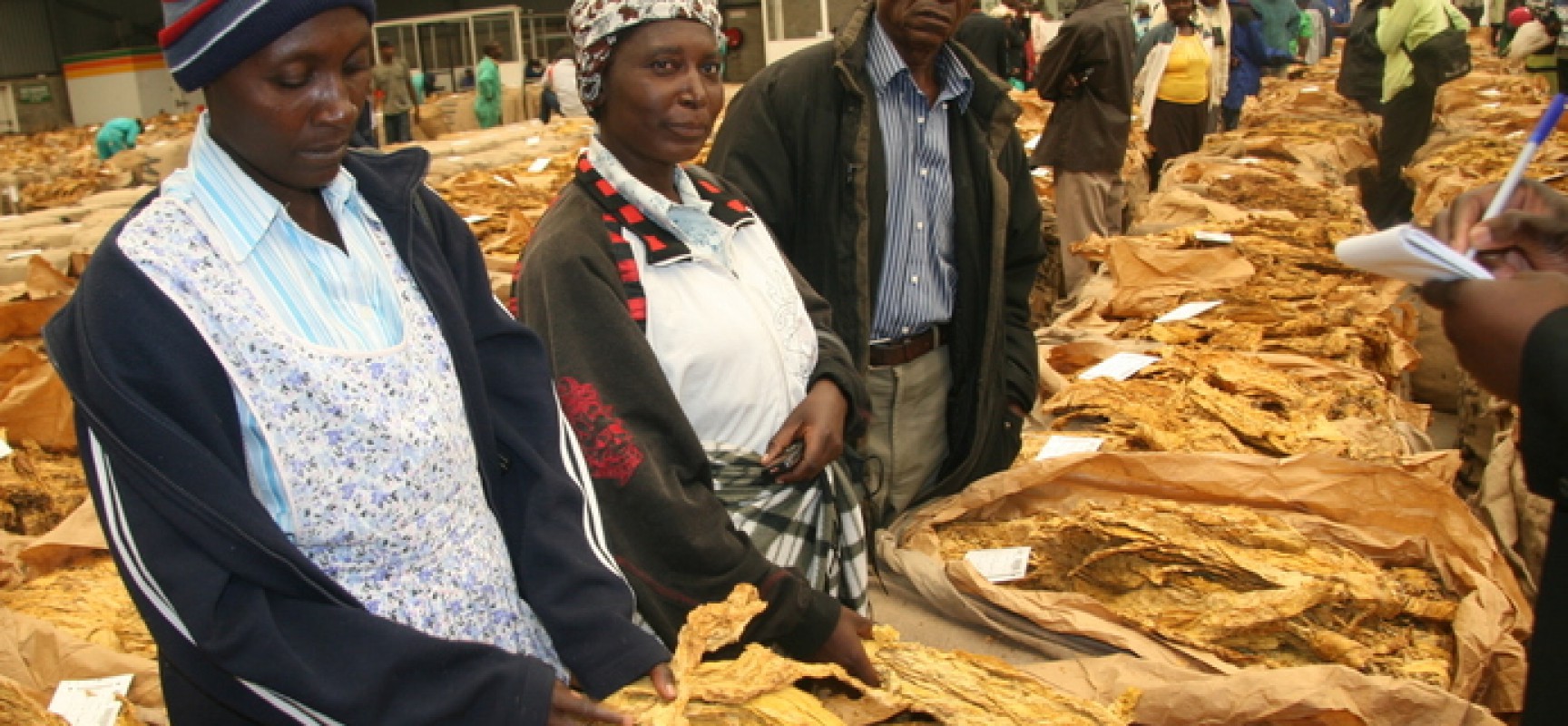 TSL Limited saw its units produce a mixed set of results for the year to October 31, 2016, with management saying the outcome is satisfactory given the challenging operating environment.
TSL Limited saw its units produce a mixed set of results for the year to October 31, 2016, with management saying the outcome is satisfactory given the challenging operating environment.
Group chief executive Washington Mr Matsaira told an analyst briefing that the group is projected to remain profitable notwithstanding the challenging macroeconomic environment.
“The year 2016 was mixed but overall the results are satisfactory because they are in line with the operating environment. We believe cash shortages indirectly and directly affected our logistics and trading businesses while tobacco operations were affected by the El-nino weather patterns as well as a slow first half.”
Consequently, group revenues were down 3 percent to $47,2 million compared to $48,6 million in 2015.
Finance director Derek Odoteye said while the decline in revenue was more pronounced in the logistics and trading operations, these were largely mitigated by mixed volume growth in the tobacco-related business and the inclusion for the first time of the revenue from the group’s farming operations.
He said margin compression across all business units coupled and changes in the sales mix resulted in group operating profit declining 17 percent to $5,5 million, equating to a margin of 11,9 percent down from 13,9 percent in the previous year. This was a result of declines in volumes and pressure on margins. Profit before tax for the year was down 18 percent when matched with levels.
However, before adjustments relating to the acquisition of Chimaya Investments, the slump was even higher at 30 percent.
Management revealed that $0,8 million and $0,13 had million been written off after completing measurement of the acquired assets.
EBITDA was down 4 percent to $8 million compared to 2015’s $8,4 million while basic earnings per share went up 7 percent to 0,93 cents per share compared to 0,87 cents per share in 2015. The group declared a final dividend of 0,30 cents per share.
Finance costs also jumped 35 percent from $1,1 million in 2015. However, worth noting is the fact that the charge in the previous year included a credit of $925 000 that the company used to recover from an associate company, Classic tobacco.
Turning to the balance sheet, total assets recorded a slight growth of 1percent to $99,4 million.
The company managed to restructure its loan portfolio with net borrowings declining by 12 percent. Short term borrowings declined by 22,7 percent to $8,4 million whilst the long term ones increased by 47,4 percent to $3 million.
Under agricultural operations; tobacco related services delivered a solid revenue and profit performance for the year despite a slow start to the season.
The group’s tobacco services include Tobacco Sales Floor (TSF) and Propak Hessian. Mr Matsaira said the company took a commanding share of the independently auctioned crop on the back of a clearer marketing strategy, increased support to farmers and timely payments to growers.
“Share at the auction floors increased to above 60 percent due to greater focus on engaging and handling of farmers,” he said.
Mr Matsaira said the Hessian business benefited from a change in the business model which resulted in competitive pricing and better product distribution.
Agricultural trading, comprised of Agricura and TSL Trading, saw a down turn in demand due to the dry spell as the company ended up sitting on product.
“Focus is on enhancing product quality, improving visibility and distribution to boost agronomic support as adequate stocks has been secured for 2016/ 17 season which is expected to be a better agricultural season.”
Under Agricultural commodities, Mr Matsaira said 2016 became the first full year of the segment’s contribution to the group. He said the group is pleased with yields and quality of maize, wheat, soya and bananas adding that the group will expand the banana plantations to a more commercial business.
The company is also looking at expanding into wheat and peas production. Mr Matsaira said tobacco farming saw good yields, but focus is now on improving quality.
Overall, the agricultural operations contributed bulk of the group’s revenue at $21,2 million an increase from $19,3 million in prior year.
The Logistics cluster saw revenue decline to $ 18,1 million from $ 21,4 million in prior year largely on Bak Logistics’ revenue and profit performance which went down.
He said during the period, there were lower volumes in General Cargo as a result of slowdown in movement of agro inputs and commodities.
Low consumer demand and forex shortages also contributed negatively. There was however, an increase to higher volumes in Ports due to increased business with existing customers.
Performance at Premier Forklift was subdued due to margin compression but there were improved forklift sales while new non-tobacco related clients signed up.
Vehicle rental revenues were lower than prior year largely due to a depressed tourism and vehicle hire market but profitability remained positive as a result of cost containment and improved vehicle disposal cycle.
Under the Real Estate cluster, revenue at $4,7 million is slightly lower than $4,8 million in 2015 but is satisfactory despite downward adjustments in rentals.
Mr Matsaira said business is largely buoyed by long-term contracts with well-established counter-parties while third party tenancy remained at 2015 levels.
He added that the rights to land earmarked for future development at Vostermans was restored through the Courts and the group will be moving to develop.
According to Mr Matsaira, investments Cut Rag Processors (30 percent) continues to operate profitably while Nampak Zimbabwe (16,53 percent) produced a solid set of results.
However, both investments remain available for sale with a combined sale value of $9 million up from prior level of $6,49 million. The increase is attributed to a fair value gain of $1,28 million on Nampak and $0,2 million on Cut Rag Processors. — Wires.
